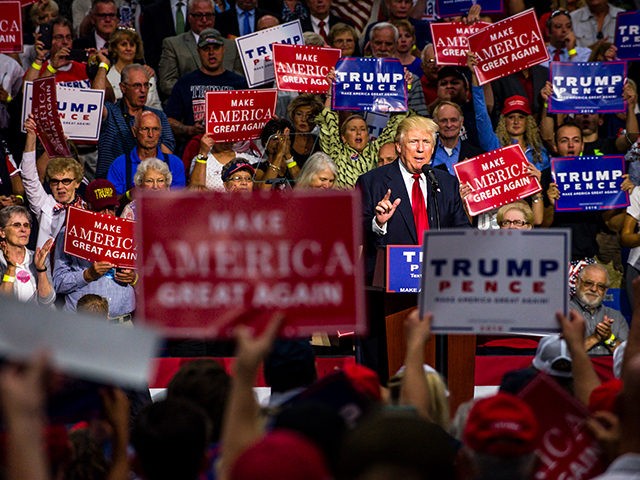Merriam-Webster named “surreal” its word of the year.
It was an M.C. Escher of an annum. The Chicago Cubs won the World Series, Cleveland ended the longest championship drought of major cities, Harambe enjoyed fame after the fall, and Donald Trump beat Hillary Clinton for the presidency.
This last item ranks as the primary reason why the calendar nearly past surely passed by as hard to believe for some. Their mouths-agape take on 2016 comes across as surreal to anyone spying yard signs on Rust Belt roads or attending a packed Make America Great Again rally.
Oprah Winfrey asked Trump about a presidential run in 1988. Larry King talked to the real estate mogul the previous year about trading in Trump Tower for the Oval Office. The Simpsons envisioned a Trump presidency in a 2000 episode.
Has there been another figure in American life who has generated more speculation about a presidential bid over the last three decades than The Donald? It’s shocking that it’s so shocking.
Donald Trump enjoyed a “huge” 2016. Hillary Clinton remembers it as a “deplorable” year. But “surreal” wins among words mainly because Trump’s detractors at Merriam-Webster remain at a loss for words despite their dictionary boasting 470,000 of them.
People whose words enjoyed the biggest megaphones certainly saw 2016 as an LSD trip of a year. The New York Times Upshot gave Clinton an 85 percent chance of winning, Predictwise awarded the Democrat a 90 percent probability of victory, and HuffPost Polster pegged her odds at 98 percent. In their defense, the chances they awarded Trump figured as significantly greater than those assigned by the numerous media personalities who laughed at the very idea of the billionaire’s candidacy.
Merriam-Webster’s tradition to coronate its most fashionable entry relies heavily on words in the political lexicon. The dictionary crowned “democracy” in 2003, “truthiness” in 2006, “bailout” in 2008, “austerity” in 2010, and “socialism” and “capitalism” in 2012. The wordsmiths and etymologists have politics on the brain.
One needn’t make an on-point deep-dive into spirit cooking, mansplain transgender changemakers as a means of onboarding visitors to our culture, or walk back a triggering fake news hot take regarding structural racism to demonstrate the evolving nature of language (though it helps). The great conversation briefly imbues jargon with meaning before overuse, or just plain use in some cases, relegates the cool-kid lingo to the verbal trashbin. Some words transcend the times. Others date them.
To borrow from Trump’s dictionary, Merriam-Webster “rigged” its word of the year once the Republican party-crashed 2016 this November. Words describe. They especially describe the people using them.

COMMENTS
Please let us know if you're having issues with commenting.